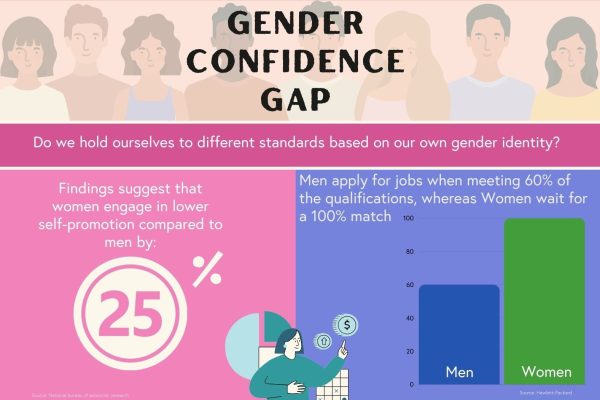Part 4: The ‘Hidden Curriculum’ of professional services marketing
3 min read
Redefining the professional services marketer’s skill set
The notion of marketers becoming strategic ‘consultants’ and ‘coaches’ rather than ‘operational functionaries’ within a professional services firm will likely be scoffed at by some sceptical partners.
However, by learning, practising and refining a new set of skills and behaviours beyond the usual marketing toolkit they have become accustomed to, marketing teams can start to work on those activities that really add value to the firm and begin to challenge the negative attitudes of doubtful partners.
What is a Hidden Curriculum?
The new skills and behaviours required of marketing in professional services firms might be described as the ‘Hidden Curriculum of Work’, as phrase coined by Jesse Sostrin[1], a director at PwC’s U.S. Leadership Coaching Center of Excellence.
Sostrin describes how: “A hidden curriculum exists whenever there are two simultaneous challenges where one is visible, clear and understood and the other is concealed, ambiguous and undefined.”
He continues: “The value you deliver, the results you produce and the impact you have on others come more often from the execution of unspoken intangibles that are not reflected in your title, job description or the daily tasks and activities you’re responsible for. This severe mismatch is based on a fundamental misunderstanding of the true demands of work.”[2]
In the case of marketing in a professional services firm, we have seen how there are well-defined, clear and visible ‘traditional’ marketing activities and yet the activities that bring most value to the firm are often concealed, not reflected in daily tasks or a typical marketer’s job description.
In our view, the hidden curriculum for professional services marketers should ensure they acquire similar behavioural and cognitive skills and abilities to those required of consultants – beyond the core skills often expected of marketers.
Critically, these skills and abilities not only require marketers to understand key consulting concepts but to develop the social and political skills needed to succeed in the dynamics of an often highly political professional services environment. In this environment they will be expected to coach, influence and manage colleagues with greater authority and seniority who are also accustomed to significant amounts of individual autonomy.
The ‘Hidden Curriculum’ of Professional Services Marketing:
The ‘hidden curriculum’ of professional services marketing would enable marketers to:
– Build credibility, personal status and reputation
– Clearly articulate a value proposition
– Coach senior partners and colleagues
– Create a strong presence and impact
– Create loyalty and trust
– Delegate effectively
– Demonstrate cognitive flexibility
– Demonstrate critical thinking
– Demonstrate sound judgment and decision making
– Develop influencing skills
– Develop logic
– Develop unseen client opportunities
– Evaluate context
– Form and deliver a point of view
– Formulate robust conclusions and present effective recommendations
– Generate opportunities based on client context
– Generate thought-leadership
– Listen effectively
– Manage conflict, handle scrutiny and difficult exchanges
– Manage critical conversations
– Manage internal stakeholders
– Manage negotiations
– Mentor junior marketing team members
– Present effectively
– Solve complex problems
– Take part in effective interactions
– Understand efficient data gathering techniques
– Undertake client stakeholder analysis
– Formulate strategic business analysis
– Use storytelling as an effective tool
For those working in professional services marketing, these skills are often not intuitive and need to be learned, practised, developed and refined through formal training, self-development or mentoring and coaching. This is particularly true for those who have worked their way up to marketing manager level without being trained in the core ‘consulting skills’ that have often been the preserve of the technical experts (fee-earners) in the firm.
It is up to those working in marketing functions to put these skills into practice, to work on those activities that add most value to the firm and prove to partners that they are more than just functionaries.
In the final part of our Special Report, we ask: what are the next steps for marketing teams and professional services leaders?
Professional Services Marketing is Dead; Long Live Professional Services Marketing:
Part 1. The Challenges Facing Marketing Teams in ‘Traditional’ Professional Services Firms
1. The attitudes of partners, principals and fee-earners towards marketing
2. ‘Traditional’ marketing toolkit activities are not as relevant and add less value in professional services
Part 2. The Current Role of Marketing in Professional Services Firms
1. Marketing work on activities that add little value to the firm
2. Marketing have most control over things that matter least
Part 3. Redefining the Role of Marketing in a Professional Services Firm
– A ‘Consultant’ to the Partner/Fee-earner group
– The new roles of professional services marketers
Part 4. The ‘Hidden Curriculum’ of Professional Services Marketing
– Redefining the professional services marketer’s skill set
– The ‘Hidden Curriculum’
Part 5. Conclusion: Professional Services Marketing at a Crossroads
– Next steps for marketing teams and professional service firm leaders
References
[1] Jesse Sostrin “The Hidden Curriculum of Work” Strategy + Business August 8 2016
[2] Jesse Sostrin “The Hidden Curriculum of Work” Strategy + Business August 8 2016



